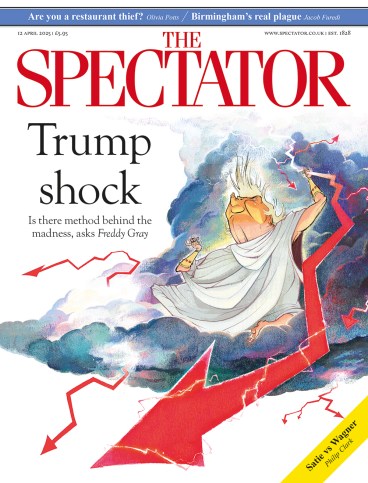
In his recent interview with our American edition, The Spectator World, Donald Trump is reported to be faced by a picture of Franklin D. Roosevelt whenever he sits at his Oval Office desk. ‘A lot of people say, why do you have FDR?’ Trump says. His answer is: ‘Well, he was a serious president, whether you agree with him or not.’ He does not state what he particularly likes about FDR, though one might guess that his capacity to be elected president four times is an attraction. Surprisingly, perhaps, FDR is not anathema to all Republicans. He even appeals to their isolationist strand, because of Yalta. At that fateful conference, it was Roosevelt who gave Stalin what he wanted, despite Churchill’s protests, thus sealing the fate of Poland and much of eastern Europe. After the war, Republicans such as Dewey, Arthur Vandenberg and Eisenhower managed to face down the isolationist strand, but it never quite went away. In the late 20th century, it was kept alive by Pat Buchanan (still with us) and has gained new pro-Russian life in the Putin era thanks to figures like Tucker Carlson and Steve Bannon and, more witlessly, Steve Witkoff. Some go so far as to blame Churchill, not Hitler, for his ‘craven, ugly’ and ‘Zionist’ second world war. Carlson has encouraged this. Is Trump’s heart (if he has such an organ) in that camp? The peace of Europe may turn on the answer.
A Times leader on Monday was sub-headed: ‘Europe must accept that the age of protection is coming to an end.’ These words illustrate the double meaning of the word ‘protection’. In another sense, America is entering the age of protection with what can accurately be described as a vengeance.
As Holy Week approaches, spare a thought for John Perumbalath.









Comments
Join the debate for just £1 a month
Be part of the conversation with other Spectator readers by getting your first three months for £3.
UNLOCK ACCESS Just £1 a monthAlready a subscriber? Log in